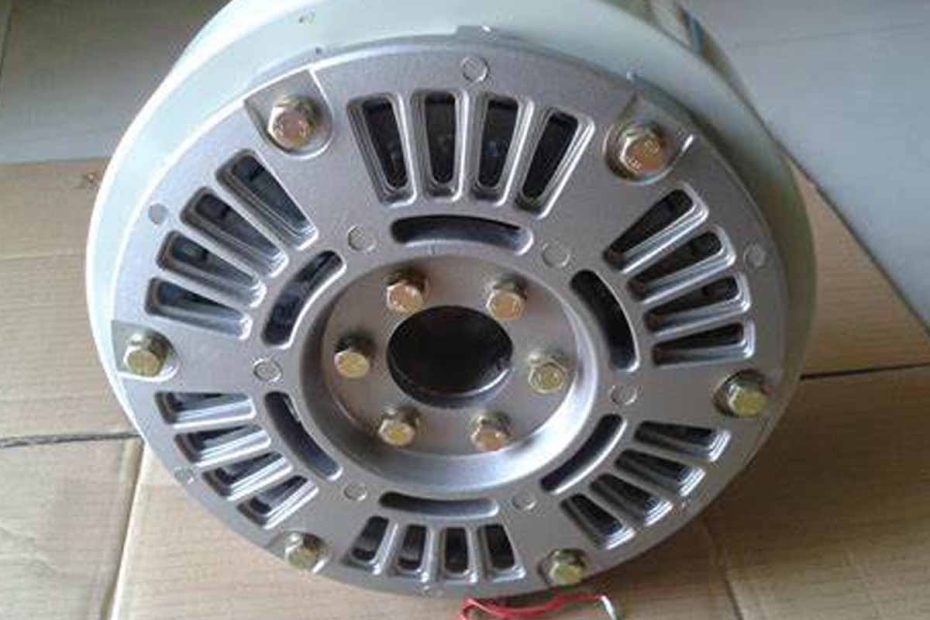Magnetic Particle Brakes (MPBs) are widely used in speed control systems across various industries due to their ability to provide precise and reliable torque control. Magnetic Particle Brakes are a type of electromagnetic clutch that utilizes the magnetic properties of particles suspended in a fluid to transmit torque.
They consist of two main components: a rotor and a stator. The rotor is connected to the input shaft, while the stator is connected to the output shaft. When an electric current is applied to the stator, a magnetic field is generated, which causes the particles in the fluid to align and create a connection between the rotor and the stator. This connection allows torque to be transmitted from the input shaft to the output shaft.
Working principle of Magnetic Particle Brakes Work?
The operation of a Magnetic Particle Brake is based on the principle of the magnetic field’s ability to control the flow of particles in a fluid. When the stator is energized, it creates a magnetic field that causes the particles in the fluid to align along the lines of magnetic flux. This alignment increases the viscosity of the fluid, which in turn increases the torque transmitted between the rotor and the stator. The amount of torque transmitted can be controlled by varying the strength of the magnetic field, which is achieved by adjusting the current supplied to the stator.
Top 4 Applications of Magnetic Particle Brakes in Speed Control Systems
Magnetic Particle Brakes are commonly used in speed control systems where precise torque control is required. Some of the key applications of MPBs in speed control systems include:
- Printing Presses: MPBs are used in printing presses to control the tension of the paper as it moves through the press. By adjusting the torque transmitted by the MPB, the tension of the paper can be precisely controlled, ensuring high-quality printing.
- Textile Machinery: In textile machinery, MPBs are used to control the tension of the fabric as it moves through the machine. This is important for maintaining the quality of the fabric and preventing damage to the machinery.
- Conveyors: MPBs are used in conveyors to control the speed of the conveyor belt. By adjusting the torque transmitted by the MPB, the speed of the conveyor belt can be precisely controlled, allowing for efficient material handling.
- Packaging Machinery: In packaging machinery, MPBs are used to control the tension of the packaging material as it is wrapped around a product. This is important for ensuring that the packaging material is applied evenly and securely.

Top 4 Advantages of Magnetic Particle Brakes
Magnetic Particle Brakes offer several advantages over other types of brakes, including:
- Precise Torque Control: MPBs allow for precise control of the torque transmitted between the rotor and the stator, making them ideal for applications where precise torque control is required.
- Reliability: MPBs are highly reliable and require minimal maintenance, making them suitable for use in applications where downtime is not an option.
- Compact Design: MPBs have a compact design, making them easy to install in tight spaces.
- Low Noise: MPBs operate quietly, making them suitable for use in applications where noise is a concern.
Limitations of Magnetic Particle Brakes
Despite their many advantages, Magnetic Particle Brakes also have some limitations, including:
- Temperature Sensitivity: MPBs are sensitive to changes in temperature, which can affect their performance.
- Limited Torque Range: MPBs have a limited torque range, which may not be suitable for applications that require high torque.
- Cost: MPBs can be more expensive than other types of brakes, which may be a consideration for some applications.
Conclusion
Magnetic Particle Brakes are a versatile and reliable solution for speed control systems that require precise torque control. With their ability to provide precise torque control, reliability, and compact design, MPBs are well-suited for a wide range of applications across various industries. However, it is important to consider their limitations, such as temperature sensitivity and limited torque range, when selecting an MPB for a specific application. Overall, Magnetic Particle Brakes are a valuable tool for speed control systems, offering a combination of precision, reliability, and compact design.
